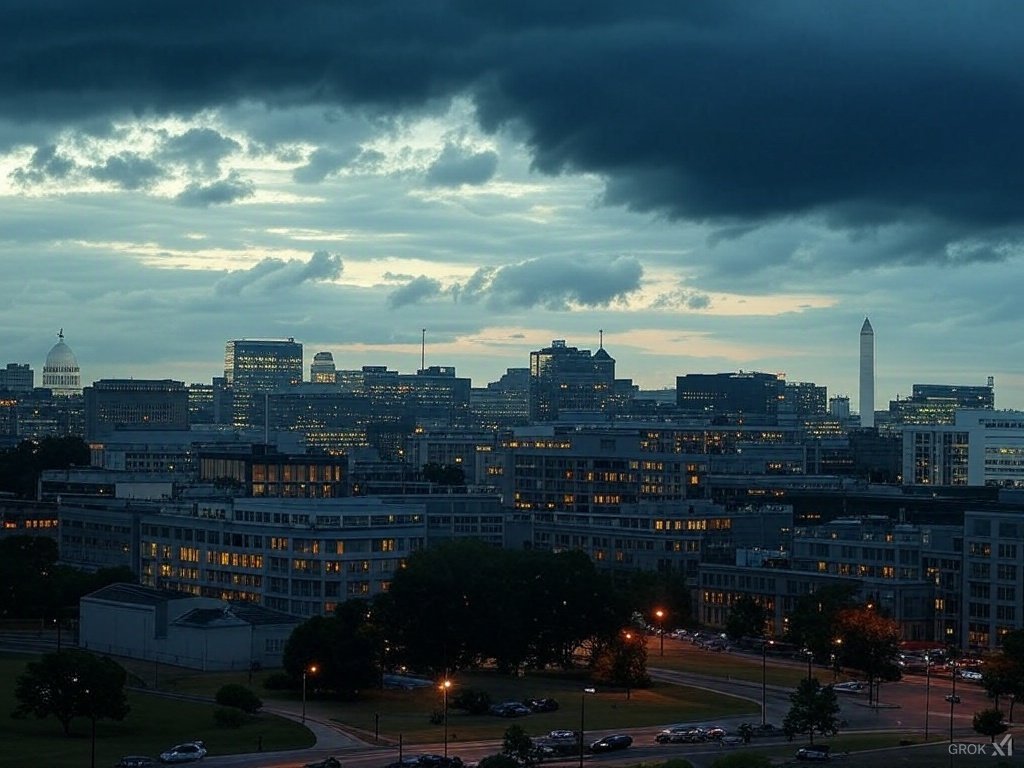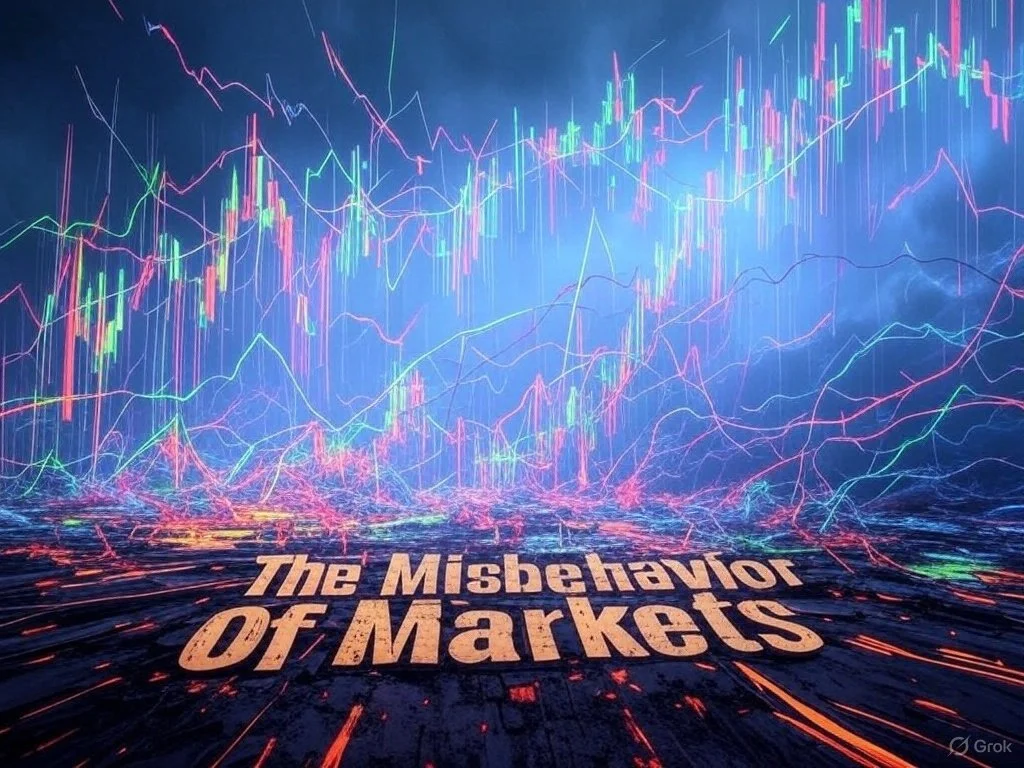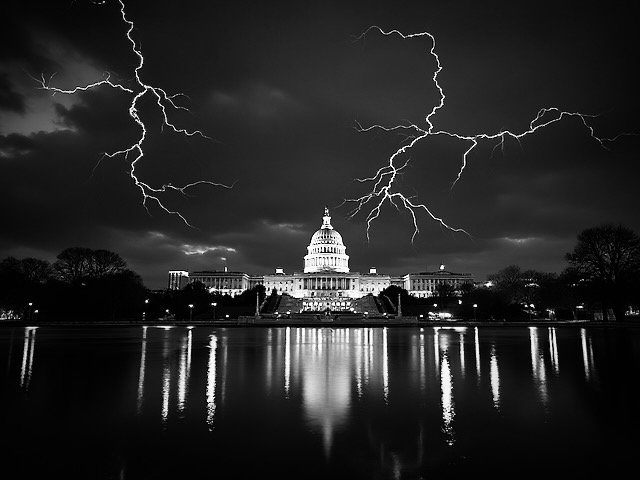Sound Money
Every few years, a few brave souls crawl out of the political swamp and whisper something shocking:
"Maybe we should have sound money again."
Cue the laughter, the sneering, the rolling of eyes.
Sound money? In this political environment?
You have a better chance of teaching a cat to do calculus.
The Clash Between Trump and the Fed
The establishment narrative, as reflected in outlets like The New York Times and CNN, frames Trump’s attacks on Powell as a dangerous assault on institutional norms, warning that undermining Fed independence could crash markets and destabilize the global economy. There’s truth here: central bank independence has been a cornerstone of stable monetary policy since the 1980s, and overt political interference could rattle investors. But this narrative often glosses over the Fed’s own missteps, like its tardy response to 2021-2022 inflation, which Powell himself admitted was a mistake. Critics on the right, including Breitbart’s economics editor John Carney, argue that the Fed’s “restrictive” stance may already be too tight, and Trump’s push for lower rates aligns with economic realities like falling commodity prices.
Ray Dalio Warns of Economic Turmoil
In a recent interview that is sending ripples through financial circles, Ray Dalio — the billionaire founder of Bridgewater Associates — issued a stark warning: the United States may soon face an economic crisis "worse than a recession" if current trends continue unchecked. Given Dalio’s track record for analyzing macroeconomic trends and forecasting major shifts, his concerns deserve careful attention.
Appearing on NBC's Meet the Press on April 13, 2025, Dalio discussed the mounting risks he sees building across trade, monetary policy, and global geopolitics. His message was clear: we are standing at the edge of a very dangerous cliff, and unless deliberate actions are taken soon, we could experience a downturn far more damaging than a typical recession.
This Isn't Vicks Rub
Right now, we're sitting on a pile of debt, fantasy valuations, political chaos, and a central bank that's out of ammo. The whole system is more fragile than most people want to admit.
When the next serious storm rolls in — and it will — the VIX won't just whisper. It’ll be screaming bloody murder.
And if you’re still partying while the fear gauge is hitting the ceiling, don’t say you weren’t warned.
The Birth of the Federal Reserve
The groundwork for the Fed was laid in 1910 at a secretive meeting on Jekyll Island, Georgia. A group of influential bankers and politicians, including Senator Nelson Aldrich, drafted a plan for a central banking authority. Their proposal aimed to balance public oversight with private expertise. After years of debate and revision, President Woodrow Wilson signed the Federal Reserve Act into law on December 23, 1913. The Fed officially began operations in 1914, structured as a unique hybrid: a decentralized system of 12 regional banks overseen by a central Board of Governors, blending government control with private banking input.
The End of the Road: Why 'Kicking the Can' Won’t Work Anymore
In Washington, the refusal to face hard truths has led to a dangerous reliance on debt to fund everything from wars to welfare to Wall Street bailouts. Rather than making tough decisions, politicians have leaned on the Federal Reserve to print more money and suppress interest rates. That’s no longer working. Inflation is no longer “transitory.” Debt payments are now one of the largest line items in the federal budget. And investor confidence is starting to crack.
The investment world is not immune from this same complacency. Many financial advisors still push the same playbook they’ve used for decades—despite mounting evidence that it’s failing to protect portfolios in real-time. Kicking the can with your money, hoping “the market always comes back,” is just as dangerous as doing so in Washington.
Charting the Course of the National Debt Over the Decades
Predicting the future is always tricky, but economists agree that managing long-term debt growth is a key policy challenge. As interest rates and inflation fluctuate, elected officials and policymakers will need to strike a balance between investing in critical areas—like infrastructure, education, and healthcare—and dealing with the debt that has spiraled out of control.
During short periods of time, a growing economy can help keep the Debt-to-GDP ratio in check, as a booming GDP effectively makes the debt load relatively smaller. But in the long run, cost-cutting, revenue adjustments, or more efficient spending is needed to maintain a sustainable debt path.
Gold, Fort Knox, and the Fiat Illusion
Amid economic uncertainties, the ultra-wealthy are making strategic investment decisions that signal a lack of confidence in fiat currencies. Beyond traditional assets, many are increasing their holdings in physical gold and exploring alternatives.
This trend reflects a broader strategy to hedge against potential currency devaluation and economic volatility. The actions of the super-rich often serve as bellwethers for broader economic trends, suggesting a growing apprehension about the stability of paper currencies.
The Hidden Fault Line
While most investors are focused on the Fed, tech earnings, or geopolitical risk, a much quieter but potentially more damaging story is unfolding in the background: rising delinquencies in commercial real estate (CRE), especially in the office and retail sectors. If you're not watching this space, now’s the time to pay attention — because it might just be the Black Swan that kicks off the long-overdue stock market correction.
The Engine of Instability
The Federal Reserve sits at the epicenter of our economic turmoil, and Michael Snyder’s latest article makes a compelling case for why this institution should no longer be held in high regard. In "19 Reasons Why the Federal Reserve Is at the Heart of Our Economic Problems," Snyder outlines a sharp critique of America’s central bank and its long-standing policies that have not only destabilized the financial system but also exacerbated wealth inequality, manipulated markets, and fueled unsustainable bubbles. For those paying close attention to the trends shaping our economy, Snyder’s points are not just valid—they’re deeply concerning. His argument is part of a growing chorus of economists, commentators, and everyday citizens questioning how such a powerful institution could go so long without genuine scrutiny.
The GOP’s Budget Resolution
The real outrage, Stockman argues, is the deficit itself: $4.4 trillion over ten years, even with all the GOP’s optimistic assumptions. That’s not a rounding error; it’s a structural failure.
And it’s not like this is new—the federal government’s been running deficits for decades, piling up a national debt that’s now north of $35 trillion. Yet here we are, with a Republican Party that once preached fiscal discipline now peddling a budget that hides the truth in plain sight.
Buffett’s Cash Strategy
In a world where many investors chase the next hot stock, Buffett’s methodical approach proves that sometimes, the best move is simply to wait—and then pounce when the moment is right.
Warren Buffett has expressed a preference for equities over cash; however, he has exercised caution in deploying capital due to limited compelling investment opportunities in the current market environment.
The Misbehavior of Markets
For decades, mainstream financial theory has relied on models that assume stock price movements follow a normal distribution—where extreme market events are rare. But history tells a different story.
Market crashes, sudden price spikes, and financial upheavals occur far more often than traditional theories suggest. Mandelbrot argues that the stock market is not a well-behaved system; instead, it is chaotic and turbulent, filled with extreme risks that many investors fail to anticipate.
The Inevitable Push for Lower Rates
The inflationary cycle of the past decade was fueled by years of ultra-loose monetary policy, supply chain disruptions, and excessive government spending. To combat inflation, the Federal Reserve raised interest rates aggressively, helping to bring price pressures under control. However, the underlying forces that drove inflation are not entirely resolved.
Wage growth remains robust, supply chains are still recalibrating, and geopolitical tensions continue to threaten commodity prices. A premature rate cut could send the wrong signal, leading businesses and consumers to believe that inflation will remain elevated, which in turn could create a self-fulfilling cycle of rising prices.
The Fed’s Greatest Mistake
In the United States, the establishment of the Federal Reserve in 1913 marked a pivotal shift in monetary policy. As Smith notes, the Fed facilitated funding for World War I, contributing to the massive loss of life and setting the stage for future economic turmoil.
The Fed's role in the 1920s economic bubble, the subsequent Crash, and the Great Depression cannot be overlooked. The transition to a fiat currency under FDR's administration initiated an era of persistent inflation.
PCE Inflation Heats Up
Despite aggressive rate hikes over the past two years, inflation is proving far more resilient than policymakers had hoped. The recent resurgence in price increases suggests that the Fed’s tightening cycle may not have been enough—or worse, that inflation is regaining strength just as financial markets and businesses are expecting rate cuts.
If the Fed miscalculates and eases policy too soon, inflation could accelerate even further, forcing an even more painful response later. With economic growth slowing and consumer spending faltering, the central bank is now caught between a rock and a hard place: fight inflation more aggressively or risk losing credibility altogether. Either way, the battle is far from over, and the consequences of getting it wrong could be severe.
The Shift in CPI Calculation
Prior to 1980, CPI was calculated using a relatively simple and straightforward approach: a fixed basket of goods and services that reflected what the average American household consumed. This method ensured that inflation measurements closely aligned with the actual rising costs experienced by consumers.
However, as inflation soared in the late 1970s, the cost of government programs tied to CPI—such as Social Security, federal pensions, and other indexed benefits—began to rise dramatically. This created significant pressure to tame official inflation rates, not necessarily to reflect true consumer costs, but to ease the financial burden on the government.
Famous Fed Optimism Before Market Crashes
For quite some time, I’ve been sounding the alarm about the bubbles inflating across all investment markets—from equities and real estate to bonds and even speculative assets. The signs are clear: sky-high valuations, unsustainable debt, and a Federal Reserve that seems trapped between inflationary pressures and the need to keep markets propped up.
Yet, if history teaches us anything, it's that markets don’t crash when investors expect them to—they crash when confidence is at its peak. And if there’s one pattern that repeats itself over and over, it’s this: whenever the Federal Reserve tells us everything is fine, trouble is right around the corner.
The Penny’s Demise
If you’ve ever tossed a penny into a jar or left it on the counter because it wasn’t worth the hassle, you’re not alone. The humble penny, once a staple of American commerce, has become little more than a relic—an annoyance rather than a functional piece of currency. In a thought-provoking article titled "Paper Money and the Fed Have Destroyed the Penny (And the Rest of Our Money)", Jacob Hornberger argues that the penny’s decline is not just a quirky footnote in economic history but a glaring symptom of a much deeper problem: the erosion of our money’s value by paper currency and the Federal Reserve.
The Economic Joyride
According to a recent Breitbart report, the Federal Reserve did what we all suspected: they hit the gas before the election, juicing the economy with easy money, and now that the political dust is settling, Powell is suddenly realizing, “Oh wait… we’re going way too fast.” So, like any good (or terrible) driver, he’s slamming the brakes.



















